-
April 4, 2016 Sabatini Building, Auditorium
The new abduction of Europe: Is a new constituent process possible?
Round table with the participation of Luís Martín (Diem25 – Democracia en Europa 20125), Sandro Mezzadra (Euronomade project) and Tom Kucharz (Journalist and militant of Ecologistas en Acción).
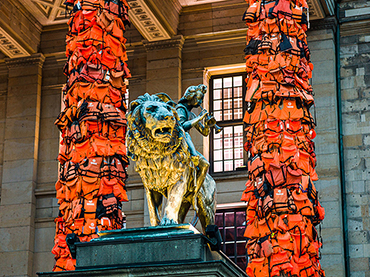
-
April 11, 2016 Sabatini Building, Auditorium
Lecture by Wolfgang Streeck
Emptying democracy, the Crisis of Capitalism and the Construction of Europe
Free attendance, until full capacity is reached
Wolfgang Streeck is Emeritus Director of the Max Planck Institute for the Study of Societies, Cologne, Professor of Sociology in the Faculty of Economics and Social Sciences at the University of Cologne and Honorary Fellow in the Society for the Advancement of Socio-Economics. His most recent publications include: Re-Forming Capitalism: Institutions Change in the German Political Economy (2010), Politics in the Age of Austerity (2013) and Buying Time: The Delayed Crisis of Democratic Capitalism (2014).
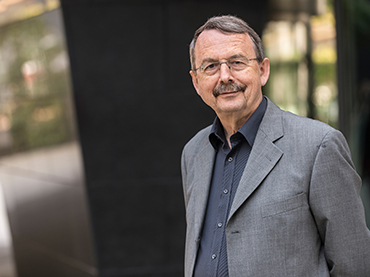
-
April 12 - 13, 2016 Nouvel Building, Study Center
Seminar by Wolfgang Streeck
Europe’s Dilemmas: Austerity Policies and the Construction of the European Democracy
Prior registration required at centrodeestudios@museoreinasofia.es
This seminar focuses on the situation of multiple institutional crises that the European Union’s project is immersed in and on its feedback through the systematic crisis of capitalism and the divides faced by the global economy and, therefore, the dominant classes and elites on the European stage.
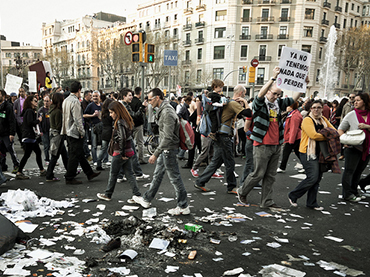
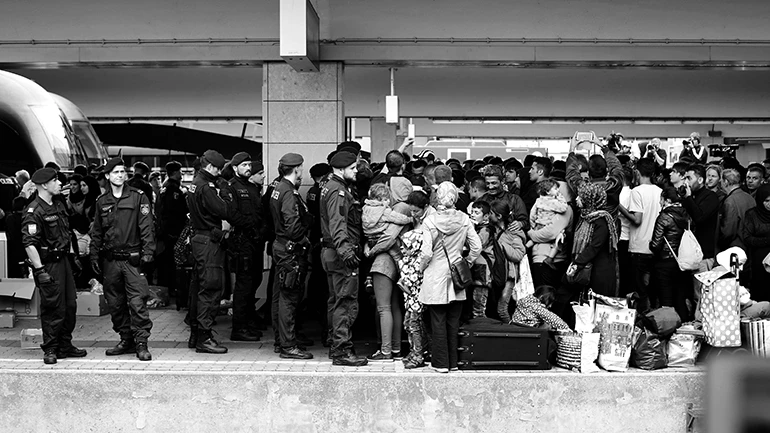
Held on 04, 11, 12, 13 abr 2016
Inside the framework of Constituent Machines: Constituent Power, Biopolitics, Democracy, the Museo Reina Sofía will hold the second session in the programme of lectures and seminars, on this occasion conducted by Wolfgang Streeck.
After a reflection on the social mobilisations, constituent assemblies and processes of political innovation experienced in Latin America over the past few decades, these new lectures inside Constituent Machines: Constituent Power, Biopolitics, Democracy will now turn the spotlight on Europe. Due to both the constrictions imposed by neoliberal institutionality and governance and the lack of suitable forms of administration to manage the current social complexity, the European Union faces the challenge of thinking and organising constituent processes located inside a markedly transnational and post-national reference framework.
Setting out from the idea of constituent power as a radical affirmation of democracy, these encounters analyse and debate the current state of emergency caused by the triple impact of the multidimensional social crisis of capitalism, the irreversible truncation of national administrative mechanisms for managing major regional and global problems, and the serious social and environmental imbalances that capitalist modernity and post-modernity have been unable to resolve democratically, fairly and equitably.
In collaboration with
MACBA (en el marco de la red de museos L'Internationale)
Framework
Programa Máquinas Constituyentes: poder constituyente, biopolítica, democracia
Related links
Organised by
Museo Reina Sofía, Fundación de los Comunes and Intermediae
Más actividades

Aesthetics of Peace and Desertion Tactics
8 October 2025 – 24 June 2026
The study group Aesthetics of Peace and Tactics of Desertion: Prefiguring New Pacifisms and Forms of Transitional Justice proposes a rethinking—through both a theoretical-critical and historical-artistic lens—of the intricate network of concepts and practices operating under the notion of pacifism. A term not without contestation and critical tension, pacifism gathers under its name a multiplicity of practices—from anti-militarism and anti-war movements to non-violence activism—while simultaneously opening urgent debates around violence, justice, reparation, and desertion. Here, pacifism is not conceived as a moral doctrine, but as an active form of ethical and political resistance capable of generating aesthetic languages and new positions of social imagination.
Through collective study, the group seeks to update critical debates surrounding the use of violence and non-violence, as well as to explore the conflict of their representation at the core of visual cultures. In a present marked by rearmament, war, genocide, and the collapse of the social contract, this group aims to equip itself with tools to, on one hand, map genealogies and aesthetics of peace—within and beyond the Spanish context—and, on the other, analyze strategies of pacification that have served to neutralize the critical power of peace struggles. Transitional and anti-punitive justice proposals will also be addressed, alongside their intersections with artistic, visual, and cinematic practices. This includes examining historical examples of tribunals and paralegal activisms initiated by artists, and projects where gestures, imaginaries, and vocabularies tied to justice, reparation, memory, and mourning are developed.
It is also crucial to note that the study programme is grounded in ongoing reflection around tactics and concepts drawn, among others, from contemporary and radical Black thought—such as flight, exodus, abolitionism, desertion, and refusal. In other words, strategies and ideas that articulate ways of withdrawing from the mandates of institutions or violent paradigms that must be abandoned or dismantled. From feminist, internationalist, and decolonial perspectives, these concepts have nourished cultural coalitions and positions whose recovery today is urgent in order to prefigure a new pacifism: generative, transformative, and radical.
Aesthetics of Peace and Tactics of Desertion, developed and led by the Museo Reina Sofía’s Studies Management, unfolds through biweekly sessions from October to June. These sessions alternate between theoretical discussions, screenings, work with artworks and archival materials from the Museo’s Collection, reading workshops, and public sessions. The group is structured around sustained methodologies of study, close reading, and collective discussion of thinkers such as Judith Butler, Elsa Dorlin, Juan Albarrán, Rita Segato, Sven Lütticken, Ruth Wilson Gilmore, and Franco “Bifo” Berardi; historical episodes such as the anti-nuclear and anti-arms race movement in Spain; and the work of artists and activists including Rojava Film Commune, Manuel Correa and the Oficina de Investigación Documental (Office for Documentary Investigation), and Jonas Staal, among other initial cases that will expand as the group progresses.
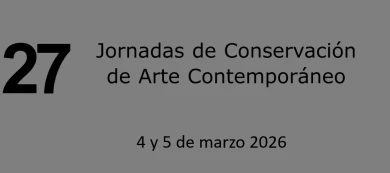
27th Contemporary Art Conservation Conference
Wednesday, 4, and Thursday, 5 March 2026
The 27th Contemporary Art Conservation Conference, organised by the Museo Reina Sofía’s Department of Conservation and Restoration, with the sponsorship of the MAPFRE Foundation, is held on 4 and 5 March 2026. This international encounter sets out to share and debate experience and research, open new channels of study and reflect on conservation and the professional practice of restorers.
This edition will be held with in-person and online attendance formats, occurring simultaneously, via twenty-minute interventions followed by a five-minute Q&A.
Submitting Proposals
The deadline for presenting proposals ends on 28 September 2025. Those interested must send an email to jornada.conservacion@museoreinasofia.es, submitting the following documents:
- An unpublished proposal related to the conservation or restoration of contemporary art.
- A 1,700-word summary, written in Word, on the theme addressed. Please indicate the topic at the top of the document with five keywords and the presentation format (in-person or virtual). Preference will be given to the in-person format.
- CV and contact details.
- Only one proposal per person will be accepted.
- Proposals related to talks given in the last three conferences will not be accepted.
Proposals may be submitted in Spanish, French or English and will be evaluated by a Scientific Committee, which will select the submissions to be presented during these conference days and will determine their possible participation in a subsequent publication, the inclusion of which will undergo a second and definitive evaluation by the Editorial Committee.
For submissions in a virtual format, participants must send a recording following certain technical requirements they will receive once participation is confirmed.
The programme of sessions will be published in the coming days.
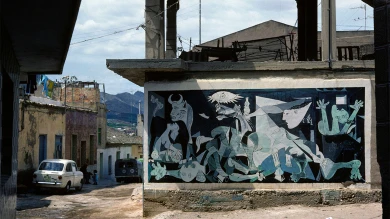
Rethinking Guernica
Monday and Sunday - Check times
This guided tour activates the microsite Rethinking Guernica, a research project developed by the Museo Reina Sofía’s Collections Area, Conservation and Restoration Department and the Digital Projects Area of the Editorial Activities Department, assembling around 2,000 documents, interviews and counter-archives related to Pablo Picasso’s painting Guernica (1937).
The visit sets out an in-situ dialogue between the works hung around the painting and a selection of key documents, selected by the Museo’s Education Team and essential to gaining an idea of the picture’s historical background. Therefore, the tour looks to contribute to activating critical thought around this iconic and perpetually represented work and seeks to foster an approach which refreshes our gaze before the painting, thereby establishing a link with the present. Essentially revisiting to rethink Guernica.
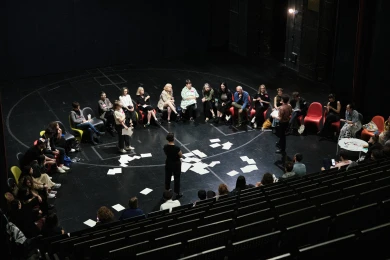
UP/ROOTING
11, 12, 13, 14, 15, 16 NOV 2025
Museo Reina Sofía and MACBA Museu d'Art Contemporani de Barcelona (MACBA) invite applications for the 2025 iteration of the School of Common Knowledge, which will take place from November 11th to 16th in Madrid and Barcelona.
The School of Common Knowledge (SCK) draws on the network, knowledge and experience of L’Internationale, a confederation of museums, art organizations and universities that strives to reimagine and practice internationalism, solidarity and communality within the cultural field. This year, the SCK program focuses on the contested and dynamic notions of rooting and uprooting in the framework of present —colonial, migrant, situated, and ecological— complexities.
Building on the legacy of the Glossary of Common Knowledge and the current European program Museum of the Commons, the SCK invites participants to reflect on the power of language to shape our understanding of art and society through a co-learning methodology. Its ambition is to be both nomadic and situated, looking at specific cultural and geopolitical situations while exploring their relations and interdependencies with the rest of the world.
In the current context fraught with war and genocide, the criminalization of migration and hyper-identitarianism, concepts such as un/belonging become unstable and in need of collective rethinking:
How can we reframe the sense and practice of belonging away from reductive nationalist paradigms or the violence of displacement? How to critically hold the entanglement of the colonial routes and the cultural roots we are part of? What do we do with the toxic legacies we inherit? And with the emancipatory genealogies and practices that we choose to align with? Can a renewed practice of belonging and coalition-making through affinity be part of a process of dis/identification? What geographies —cultural, artistic, political— do these practices of de/centering, up/rooting, un/belonging and dis/alignment designate?
Departing from these questions, the program consists of a series of visits to situated initiatives (including Museo Situado, Paisanaje and MACBA's Kitchen, to name a few), engagements with the exhibitions and projects on view (Project a Black Planet: The Art and Culture from Panafrica), a keynote lecture by Stefano Harney and Fred Moten, as well as daily reading and discussion gatherings, editorial harvest sessions, and conviviality moments.
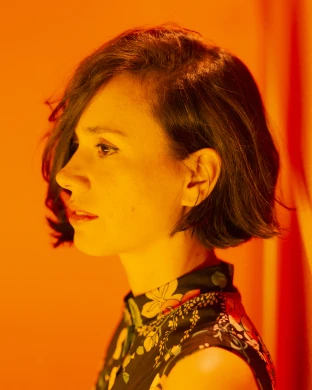
Ylia and Marta Pang
Thursday, 6 November - 8pm
The encounter between Spanish DJ and producer Ylia and visual artist Marta Pang is presented in the form of a premiere in the Museo Reina Sofía. Both artists converge from divergent trajectories to give form to a new project conceived specifically for this series, which aims to create new stage projects by setting out from the friction between artists and dialogue between disciplines.
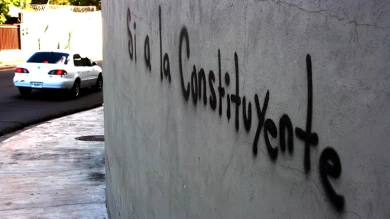
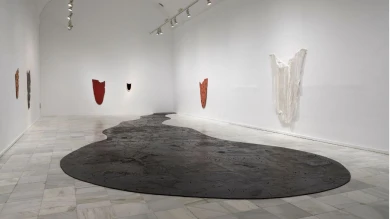
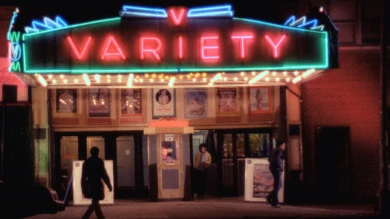
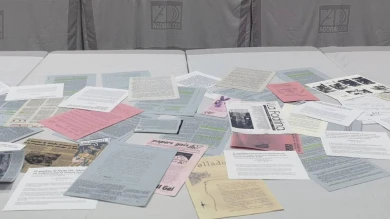
![Miguel Brieva, ilustración de la novela infantil Manuela y los Cakirukos (Reservoir Books, 2022) [izquierda] y Cibeles no conduzcas, 2023 [derecha]. Cortesía del artista](https://recursos.museoreinasofia.es/styles/small_landscape/public/Actividades/ecologias_del_deseo_utopico.jpg.webp)
![Ángel Alonso, Charbon [Carbón], 1964. Museo Reina Sofía](https://recursos.museoreinasofia.es/styles/small_landscape/public/Actividades/perspectivas_ecoambientales.jpg.webp)